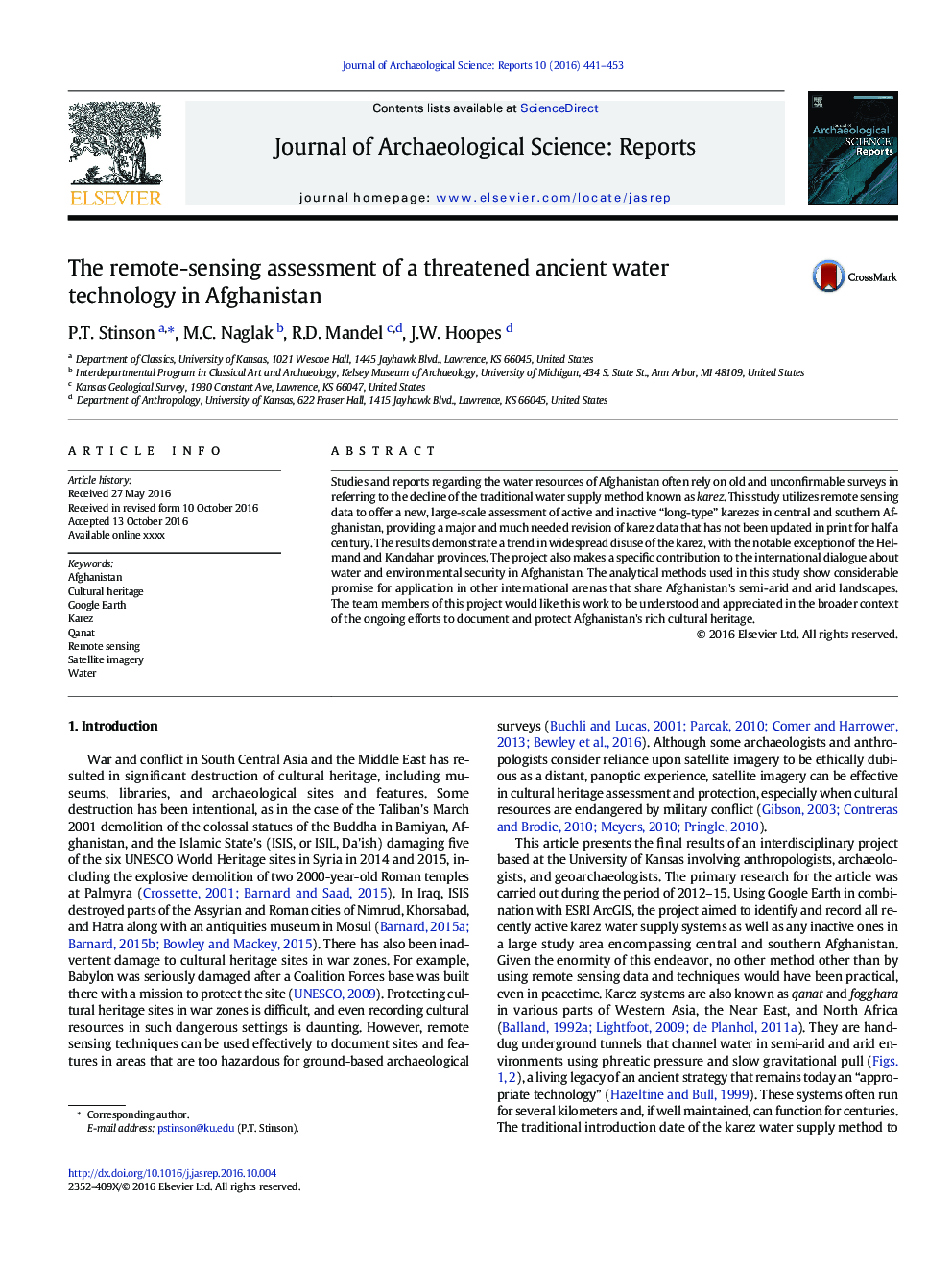| Article ID | Journal | Published Year | Pages | File Type |
|---|---|---|---|---|
| 5112256 | Journal of Archaeological Science: Reports | 2016 | 13 Pages |
Abstract
Studies and reports regarding the water resources of Afghanistan often rely on old and unconfirmable surveys in referring to the decline of the traditional water supply method known as karez. This study utilizes remote sensing data to offer a new, large-scale assessment of active and inactive “long-type” karezes in central and southern Afghanistan, providing a major and much needed revision of karez data that has not been updated in print for half a century. The results demonstrate a trend in widespread disuse of the karez, with the notable exception of the Helmand and Kandahar provinces. The project also makes a specific contribution to the international dialogue about water and environmental security in Afghanistan. The analytical methods used in this study show considerable promise for application in other international arenas that share Afghanistan's semi-arid and arid landscapes. The team members of this project would like this work to be understood and appreciated in the broader context of the ongoing efforts to document and protect Afghanistan's rich cultural heritage.
Related Topics
Social Sciences and Humanities
Arts and Humanities
History
Authors
P.T. Stinson, M.C. Naglak, R.D. Mandel, J.W. Hoopes,
